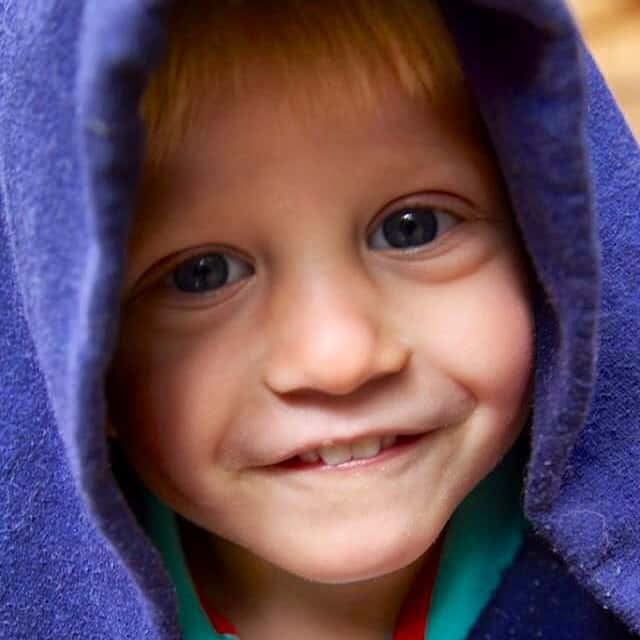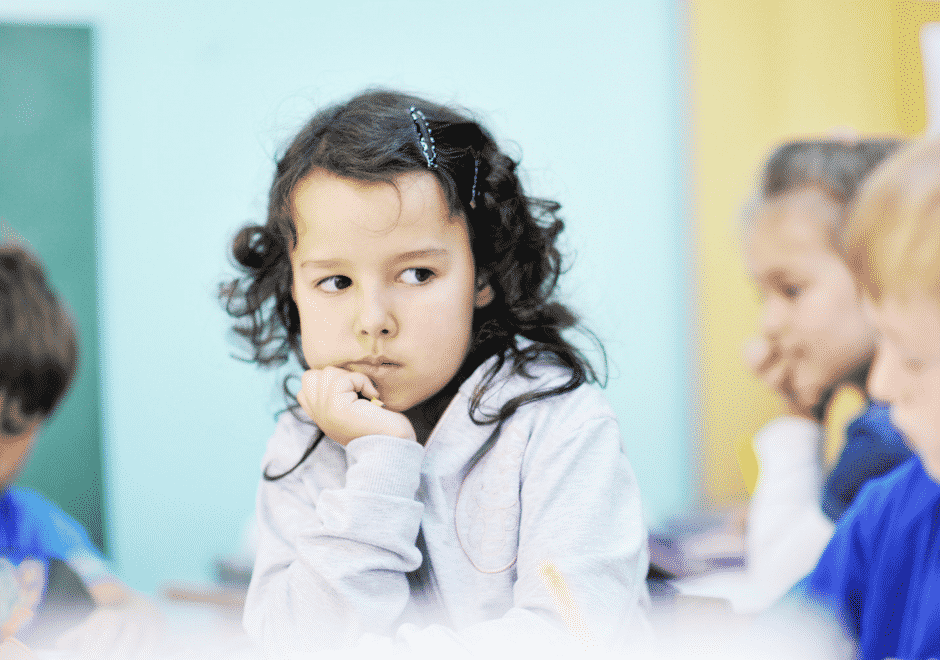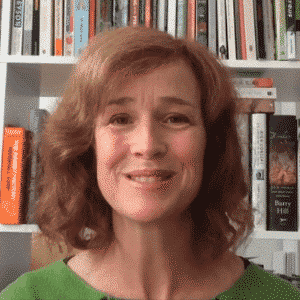I met up with an old friend recently, the mother of four grown children. She had just become a grandmother for the first time. She had dedicated her personal life to her kids, and as they grew she dedicated herself as a medical practitioner to child and adolescent health. It would be hard to find a more caring, thoughtful or dedicated parent. As I listened to her talk about her grown-up daughter’s troubles with getting breast-feeding established, it dawned on me that this deeply committed woman was feeling somehow guilty.
How could she be there for her daughter without seeming too over-involved, she wondered? What could she do to make things easier for her grown-up daughter? The longer I work with parents, and the longer I am a parent, the more I realise that all of us feel truckloads of guilt.
Noticing Your Guilt is Step One
I’ve also begun to notice that this guilt can often come out as judgment directed toward ourselves and other parents. To unravel some of my own feelings of guilt, and to be better able to support the parents I work with, I tuned in once again to my very favourite parent educator, Patty Wipfler, Founder and Programme Director of Hand in Hand Parenting. She has helpful perspectives to offer those of us who feel guilty, and frankly, there are not many parents alive who don’t.
 Patty explains that parents instinctively never want their children to get hurt. Ever. We ardently wish we could make a perfect life for them. Unfortunately, life doesn’t work that way. We don’t have the power to protect our children from every single hurt.
Patty explains that parents instinctively never want their children to get hurt. Ever. We ardently wish we could make a perfect life for them. Unfortunately, life doesn’t work that way. We don’t have the power to protect our children from every single hurt.
Often, the trials and tribulations of labour will explode your dreams of the birth pool and gentle music; you might lose a beloved family member too early in your children’s lives; you might have to move your family for your work and dislocate your child’s schooling as a result, or perhaps your adventurous child breaks her arm when you invite her to explore that tree.
You know the worry that bothers you most!
Here’s the headline: it’s not possible to make a child’s life perfect. But the good news is, that's also not necessary.
Children come with a simple, elegant (although on the outside it may seem loud and messy) way of recovering from hurt. We can adopt a different perspective on hurt than the one we grew up with. Yes, our children can and do get hurt on our watch. Yet we do have the power to help them recover from that hurt. Just as their bodies have the capacity to recover from a scraped knee or a broken bone with the right support they can heal from emotional hurts too. The emotional realm might need a little more thought, planning and loving care, but with the right support you can make all the difference.
 What we know from research – and long experience at Hand in Hand Parenting – is that children need someone from the outside to help them when they are swept up in healing from emotionally hard times. So, dear parent, the first thing to understand in order to help your kids, is that you have done your best. (Even when you lost it as a parent, you were doing your best with the inner and outer resources you had available to you in that moment).
What we know from research – and long experience at Hand in Hand Parenting – is that children need someone from the outside to help them when they are swept up in healing from emotionally hard times. So, dear parent, the first thing to understand in order to help your kids, is that you have done your best. (Even when you lost it as a parent, you were doing your best with the inner and outer resources you had available to you in that moment).
Letting Guilt and Regret Go
It’s not your fault that hard things have happened in your child’s life, but it is your responsibility to do something about it.
As you look back and regret the things that have happened in your child’s life there’s a smart thing to do. In fact, it’s the only thing you can do with regret, and that is to release it.
Take that regret to your Listening Partner. In your Listening Partnership, you can cry and cry, tremble in fright, or shout and rage about the things you regret. Work to release the feelings behind the regret so you can be pleased with yourself. You have the right to be pleased with yourself and that’s what your child wants for you. They don’t want you feeling awful, they want you to play, they want you to be there with them, present and relaxed.
Given that we live in a society that doesn’t support parents or children well, when you find yourself being hard on yourself again, go back to your Listening Partner. In that safe space, with another non-judgmental adult, try apologizing, as if you were talking heart-to-heart with your child. Tell other people how sorry you are about what happened. Tell yourself sorry. Shed those tears. They are the rain that falls and makes the flowers so sweet in the spring. Share the dark thoughts you have, then leave them behind.
Most often the voice inside our heads that digs at us about our imperfections is our parent’s voice, so you can also go back in your Listening Partnerships and stick up for yourself. Tell your listener: “I am a good person, I am doing my best!” This time around you get to fight for your dignity. Take on those corrosive messages implanted years ago by those who found you wanting. Those parents or carers didn’t know what to do with their stresses and often blamed us for their upsets. So remember: you are good.
Another important perspective is that when we were young and people were hard on us, or scary things happened to us, the hurt went in, and it stayed. Grownups didn’t know how to help us, so the hurt felt permanent. We were hurt and we were alone with it and we stayed hurt. When we notice that our children have been hurt we may start to think: “Oh my gosh, my poor kid. They will be saddled with this for the rest of their lives!” The real situation is actually encouraging! You can learn Listening tools, taught by Hand in Hand Parenting, that will empower your child, at any age, to keep working through their feelings of hurt until they are fully powerful, cognizant, capable, warm human beings. That could take a while but you have time, tools, love, energy, and a community that you will build around you in the process of parenting by connection.
 So what feels like a tragedy is actually the tragedy of your own life: that the adults around you left you alone and feeling hurt when you were little.
So what feels like a tragedy is actually the tragedy of your own life: that the adults around you left you alone and feeling hurt when you were little.
They cared but they didn't know how to help.
They didn’t have the capacity to help.
They didn’t know how to reach out and listen to your feelings.
They mistook your crying and your signals of distress for bad behaviour.
And they may have hurt you some more.
So it’s good to remember that your child’s hurt is not permanent. The reality is you can learn listening tools that can help your child with almost anything.
You can learn tools to help your child every single day for the rest of your life.
You can’t lift all hurts between today and tomorrow, but you can do one healing thing between today and tomorrow. You can initiate one good playtime, with lots of laughter (no tickling!); or one good Staylistening, where you move in close when they cry and listen warmly and respectfully to them.
You can initiate one good Special Time, where you give your child your full, warm, relaxed attention for a set period of time; or you can get silly over dinner time, throw caution to the wind and instigate a playful exchange of peas from your plate to your child’s, and see what happens! Tensions may melt, laughter can roll, and you get from today to tomorrow.
One day at a time is just fine for bringing a child through almost any kind of difficult experience. It doesn’t have to be grand, showy or magic. The future is promising. The spring flowers are pushing up through the earth even if the air still feels cold. It was hard that your child got hurt. You would have wished it any other way. Yes, it had effects, but the future holds promise.
There’s emotional work to be done, and you can build the support to do that work. And life gets more fun as you do.
How I Worked To Release My Guilt
I have a Catholic mum and grandmother and went to a Catholic high school, which certainly hasn't helped me overcome guilt! I feel it acutely. I’ve been lucky enough to have Listening Partnerships in my life, and have done now for around a decade since I had the good fortune to come across Hand in Hand Parenting. A few days before Christmas this year, my 13-year-old daughter fell from her top bunk and suffered a minor fracture of her collarbone.
When either of my kids gets hurt, my default is to feel immediately guilty and fearful that I have done something wrong.
 In this case, my mind raced – I had noticed that she was over-tired that evening, but I hadn’t insisted that she give up that last thing she’d wanted to do that night.
In this case, my mind raced – I had noticed that she was over-tired that evening, but I hadn’t insisted that she give up that last thing she’d wanted to do that night.
If she hadn’t been so tired maybe she wouldn’t have slipped from the top bunk, so as usual, I felt that the accident was all my fault. I felt my fear and upset spike and I rang a trusted ‘emergency’ Listening Partner immediately. Thankfully my dear Listening Partner was available to listen to a fairly short but intense rant on my part. I told her how very scared and guilty I felt. I moaned that I should have set the limit, as I could plainly see how tired she was.
After a few minutes of verbally beating myself up with my Listening Partner holding out for the goodness in me, I had broken up the guilt enough to reach for the feelings underneath. There was grief there for other hurts and losses I’d experienced while being her mum. Towards the end of that ‘emergency’ Listening Partnership I could even laugh about how much I liked to feel I was in control of everything by making everything all my fault! And I shook with fear that life doesn’t work like that: we are not always in control. Soon, I had cleared the decks enough to be warmly, calmly there for my daughter as she came back with her Dad from treatment, tearful and wearing a sling on her arm.
Thanks to Hand in Hand Parenting, I’ve learnt that the best way to get through hard times is together. So even though it has been years since my daughter and I have co-slept, I offered to sleep with her that night so I could help her if she needed me. She was happy to accept, and we did that for the next few nights. What with our shared nights and me tenderly helping her get dressed, we were closer that Christmas than I could have imagined.
At times in the first few days after my daughter’s accident, when I saw how painful her shoulder felt, I would get hard on myself again and the guilt would surface. I’d make contact with a Listening Partner, exchange some time and let the regrets rip.
I’d clear enough space to be able to think well about how to connect and empathize with my daughter, rather than shut down in my own pain or guilt. Two weeks later my daughter went to the fracture clinic for a checkup. She was in great shape. She no longer needed to wear her sling, and the doctor was surprised at how fast she was healing and the movement she’d already got back in her shoulder and arm. My daughter was positive, relaxed, and keen to get back to her yoga class as soon as possible.
Since her accident, we have been close and connected, and what looked at first like an awful thing has cleared out a channel of connection between us, though she’s an active and increasingly independent young teen. Together, we’re in good shape and healing up well.
From the Hand in Hand Toolbox
For more on Listening Partnerships
